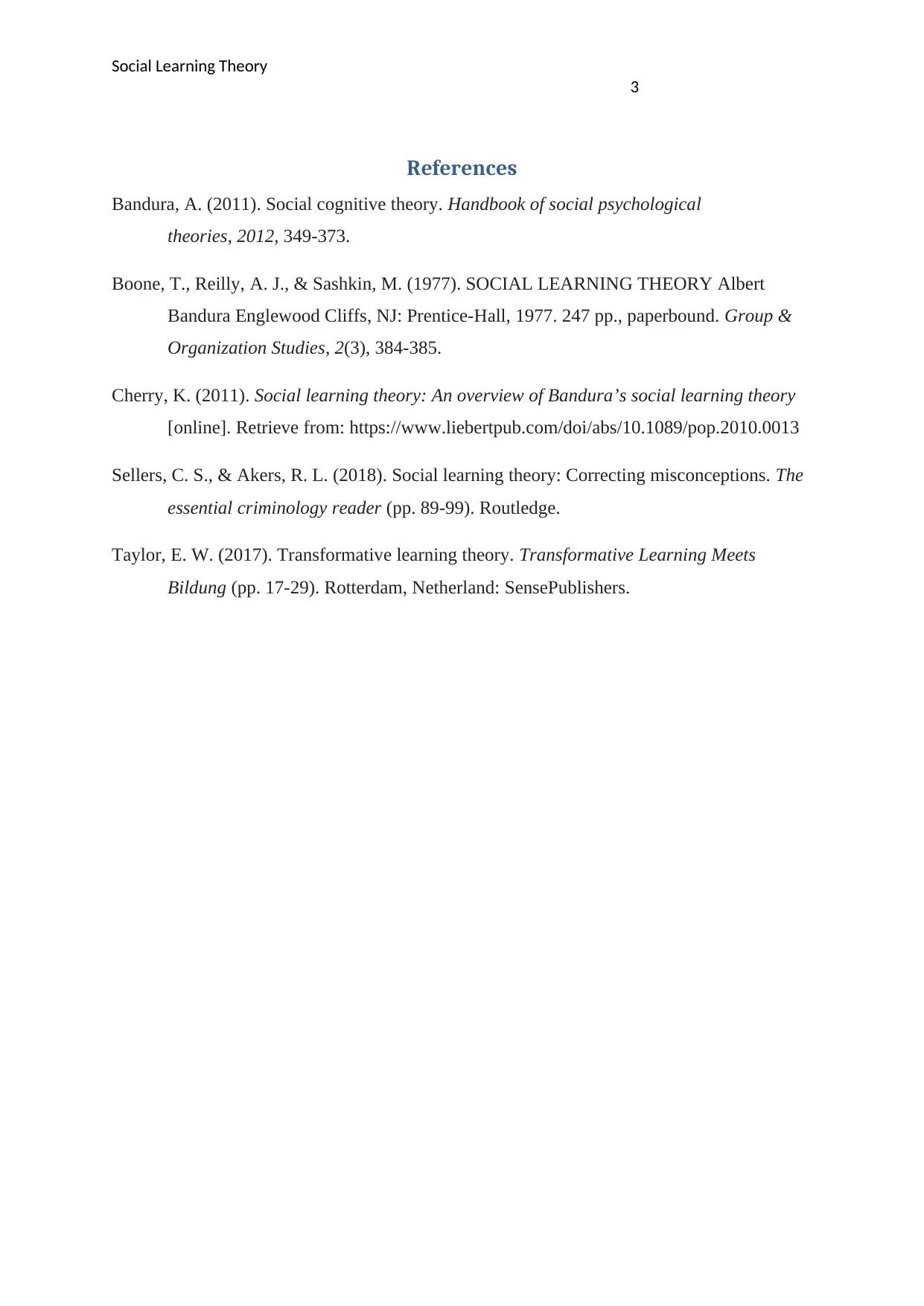Critical Evaluation of Social Learning Theory and its Limitations
VerifiedAdded on 2023/04/21
|4
|812
|76
Essay
AI Summary
This essay provides an overview of Bandura's Social Learning Theory, emphasizing the importance of social interaction, observation, imitation, and modeling in the learning process. It highlights the theory's position as a bridge between behaviorist and cognitive learning theories, incorporating memory, motivation, and attention. The essay discusses the reciprocal interaction between environment, behavior, and psychological processes, as well as conditions for effective modeling such as retention, reproduction, and motivation. It contrasts Bandura's theory with Vygotsky's sociocultural theory, noting the different focuses on individual effort versus social learning importance. The essay also addresses the role of social and environmental factors, such as teachers and learning tools, while acknowledging the theory's limitations, including its lack of consideration for physical and mental changes and behavioral differences. The shift towards online and digital education is presented as a challenge to the traditional interactive learning environment proposed by the theory.
1 out of 4










![[object Object]](/_next/static/media/star-bottom.7253800d.svg)